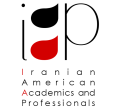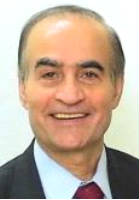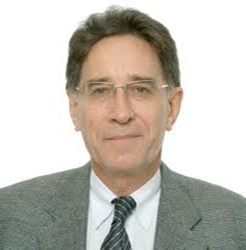Where: Montgomery Community College (Rockville Campus) – Humanity Building (HU), Conference Room 009 (Get Directions, Campus Map )
Language: English

Synopsis:
Inflammation is a series of complex immunobiological responses of tissue toward infections and biological, chemical or environmental hazards. A role for inflammation in acute and chronic inflammatory diseases and cancer recognized for centuries. However, ongoing, controversies, misinformation on the role of inflammation in cancer research and therapy, have been tremendously costly for the aging society globally. Claimed cancer ‘targeted’ therapies or ‘personalized’ medicine produced 90% (± 5) failure rates, primarily due to heavy investment on genetic mutations of molecules identified in chaotic environment of cancers and bases for therapy. Dr. Khatami talk will focus on recent definitions of acute inflammation, the balance between two biologically opposing arms of immunity termed ‘Yin’ and ‘Yang’. She hypothesized that chronic inflammation or loss of balance in Yin -Yang of immunity is a common denominator of nearly all age-associated chronic diseases or cancer. Results of her ‘accidental’ discoveries, established in 1980’s at the University of Pennsylvania, on models of inflammatory diseases, are suggestive of first evidence for a direct link between inflammation and tumorigenesis. She also published a first report on time course kinetics of inflammation-induced developmental phases of altered immune dynamics leading to tumorigenesis and angiogenesis. Future directions of effective cancer prevention, designs of clinical trials and drug development require systematic understanding of the multistep immune disruption toward carcinogenesis.
About the Speaker:
Professor Khatami received her PhD in Molecular Biology (Univ. PA- 1980). Her postdoctoral trainings were in physiology, proteomics and immunology. As a research faculty of medicine at Dept. Ophthalmology, UPA she quickly earned her supervisory roles on two major projects; cell/molecular biology of diabetic retinopathy/maculopathy, and models of ocular inflammatory diseases. At University of PA, Dr. Khatami became the most productive scientist in United States, as she published 39 articles and over 60 abstracts in the first decade of her career. In 1998, at National Cancer Institute, NIH, as Program Director, she developed molecular concepts for cancer diagnosis and prevention; design of clinical studies and utilization of patients’ biospecimen for clinical trials (PLCO). Her challenging efforts to promote the role of inflammation in cancer research and therapy, initially met with serious opposition. In recent years, number of funded projects on this topic significantly increased globally. In 2005, she published an NCI-Invention, standardizing cancer biomarkers criteria, as foundation of database. Dr. Khatami lectures internationally; was president-VP-GWIS-Omicron; scientific judge; research adviser, consultant to pharma, edited 2 books. She is Associate Editor, Cell Bioch. Biophys.; Academic Decision Editor, BJMMR. Before retiring at professor level, she was Dir. IMAT Program, Asist. Dir. Tech. Prog. Develop., NCI/NIH.
Fee (including dinner): $10 Students, $15 Public
Please click here to RSVP.



